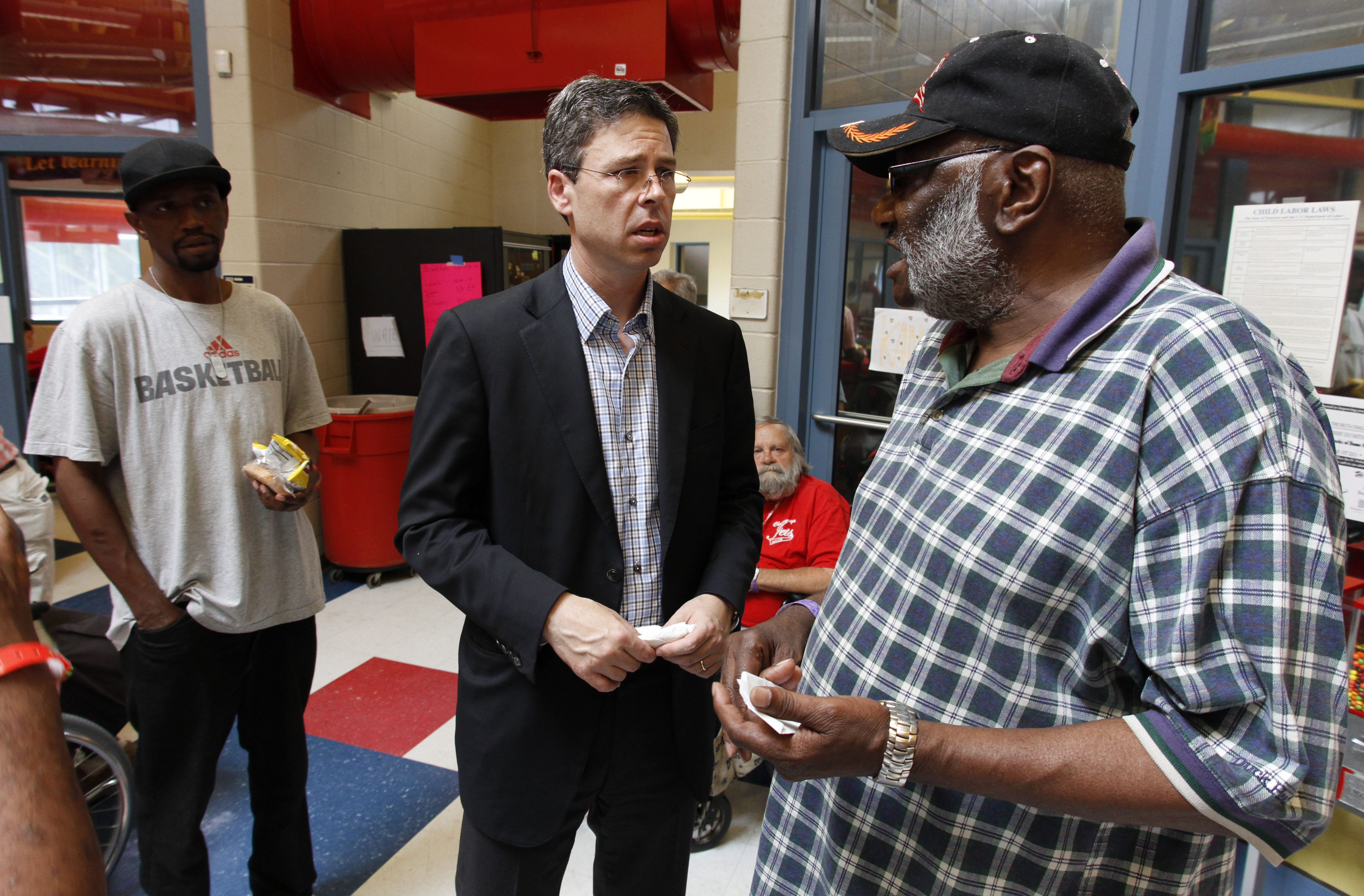VIDEO
This story is featured in today's TimesFreePress newscast.
HOW TO HELP• Visit the Red Cross online at RedCross.org• Contact the Salvation Army at 1-800-Sal-Army or go to CSArmy.org
Donations to Chattanooga area relief organizations have failed to keep pace with more than $80,000 in expenditures during the Patten Towers crisis.
In contrast with tornado-and hurricane-related disasters from years past, gifts to the Red Cross and Salvation Army -- including a promised endowment from Patten Towers owner PK Management -- haven't materialized in the week since an electrical fire drove 241 residents from their downtown home.
That's a shame, officials say, because these refugees are the poorest of the poor -- too poor to afford regular public housing. The disaster that turned their lives upside down has lasted longer and required more emergency aid than any Chattanooga tragedy since Hurricane Katrina, and the financial shortfall could leave the Red Cross and Salvation Army ill-prepared to deal with future mobilizations.
"This disaster itself is just over a fourth of my entire disaster budget for the whole year, and we're blowing that in six days," said Greg Waite, CEO of the Chattanooga Area Red Cross. "I'm worried about what else comes throughout the year."
The disaster was exacerbated by the needs of the residents themselves, some of whom require near-constant medical attention and who were still being visited by emergency personnel at their hotels on Wednesday.
Most displaced Patten Towers residents subsist on less than $12,000 per year in Social Security disability payments. They pay a little more than $200 a month for rent, which covers just a third of the cost. The U.S. Department of Housing and Urban Development writes a check for the rest to PK Management.
Many residents are mentally or physically disabled and can't get or hold jobs.
They're exactly the type of people that the U.S. social safety net was designed to catch.
But the combination of sloppy oversight, inadequate maintenance and absentee landlords has turned their lives upside down, officials say. And at the time when they're needed the most, Chattanooga's typically generous donors have closed their wallets to the refugees' plight.
"This is a sore subject," Waite said. "Most of the people in this community do not like the Patten Towers. There are even some people who maybe feel that we shouldn't do what we are doing."
The fact is, there are few Patten Towers enthusiasts in Chattanooga. The building, sitting in the middle of Chattanooga's business district between TVA headquarters and City Hall, is a constant reminder of the city's decline in the 1970s and '80s.
The former Patten Hotel, which turned 100 years old in 2008, was the first skyscraper in Chattanooga when it was dedicated. Back then, it was the nicest place in town, hosting U.S. presidents, evangelists and musical acts.
But by 1970, the hotel was failing, along with Chattanooga's industrial output and passenger rail service. Its vintage fixtures were soon pulled off the walls and sold, and Section 8 residents were moved in. Patten Towers transformed from the pride of the Scenic City into a building that many cross the street to avoid.
Last refuge
Many residents have nowhere else to go. For some, their last home was a bridge or a box. Some have families or friends, but none who will take them in.
Resident Willie Williams, who has a nagging cough and uses a wheelchair to get around, fathered 24 children across Chattanooga in his early years. None of them visits him unless they need something, he says. None has called to check on him during the disaster.
With nowhere to go and no one to turn to, he's living quietly for the next five days in the Staybridge Suites.
"Will there be food coming later?" he asked a Red Cross volunteer from his seat in the lobby.
The Red Cross and the Salvation Army can't say no. Their mission is to help people, regardless of what society thinks.
"We average one disaster a day, and we run it the same way whether it's a single-family fire, flooding, a tornado, even down to a community crisis like what we've dealt with for the past seven days," Waite said. "We could have storms that come through tomorrow night and have people who need shelter and we have to be ready to go. We have to be prepared, no matter what."
In the past seven days, the Red Cross and Salvation Army served more than 12,000 meals, distributed more than 11,000 towels and blankets, conducted more than 600 medical appointments and treated two cats.
Hope for help
Kimberly George, who managed the Salvation Army's response to the disaster, said so far the pace of donations has been slow. Even without large-scale disasters, this is the tightest time of the year for the Salvation Army. Many with school-age children are going on vacation, and their minds are on sand and margaritas, not meals and cots.
"We've only gotten a couple donations in for this disaster," George said. "We're tight. We're worried about being able to provide service."
George hopes to recoup at least $10,000 to get the local Salvation Army chapter back in the black, but so far that hasn't happened.
"When you have a disaster hit at the same time your budget is the tightest, it certainly could cause many of us to pause and wonder how are we going to pay the bills," she said. "We're just having faith. It's what we have to do. It's what we've done for 120 years."
Contact staff writer Ellis Smith at esmith@timesfreepress.com or 423-757-6315.


